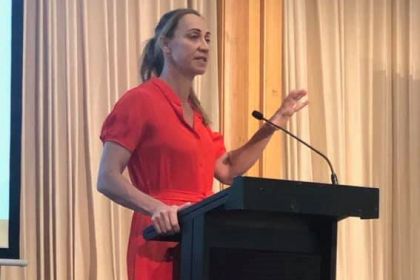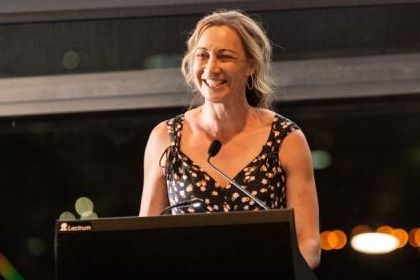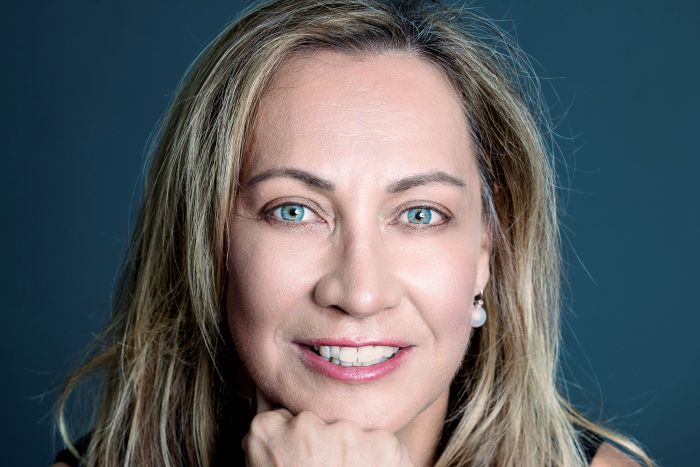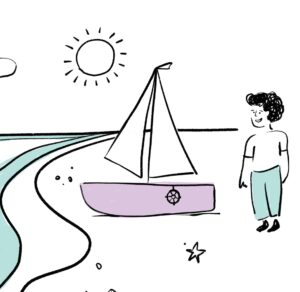Adjunct Professor Tracy Westerman, a proud Nyamal woman from the Pilbara region of Western Australia, recently shared with us her perspectives on mental health and wellbeing, and her work. Tracy’s leadership to agitate individuals and organisations to help her build an army of Indigenous psychologists is gaining traction.
A/Professor Westerman was awarded Western Australia’s Australian of the Year in 2018. She was recognised for spending over two decades working to reduce the burden of mental ill health and suicide in Aboriginal communities.
Psychological Distress
Indigenous Australians experience high levels of psychological distress at almost three times the rate of non-Indigenous adults1 with standardised death rates of 38.1 suicide deaths (for men) and 10.3 suicide deaths (for women) per 100 000 of population4. Contrasted for non-Indigenous Australians with suicide death rates of 18.6 (for males) and 5.7 (for females) per 100 000 of population5. Western Australia has consistently recorded the highest death rate for Indigenous Australians between 2009-20184.
Significant Gap
While studying for her degree in psychology Dr Westerman noticed the significant gap between the Western worldview and the Indigenous worldview and the monocultural perspective entrenched in psychology. There is a disconnect between the mind and body and a lack of acknowledgement of alternative worldviews or spirituality.
Cultural Bound Phenomena
Dr Westerman referred to “cultural bound phenomena” where cultural syndromes can mimic mainstream mental health diagnoses. A lack of understanding of a person’s cultural worldview compromises assessment. For that reason, Dr Westerman has developed a cultural mapping tool, the Acculturation Scale for Aboriginal Australians.
The client must inform the treatment; the practitioner must have an understanding of, for example, kinship as opposed to a nuclear family and obligations surrounding cultural lore. It’s an understanding which has applications not only within psychology, but in the broader community, in families and workplaces.
Receive Best Practice
Dr Westerman argues that any Aboriginal person should be able to walk into any service provider in the country and receive best practice. Some services may have the clinical ability but lack cultural competence, conversely incredible cultural services don’t have the clinical capabilities, and this is exacerbated in remote areas. The lack of cultural competency training at universities is something Dr Westerman is working on, ensuring that her training is embedded in universities across Australia to achieve a minimum standard of cultural competency.


Indigenous Psychologists
Something else Dr Westerman is focusing on is building an army of Indigenous psychologists, something which has received a lot of attention and energised the possibilities of what can be done.
Indigenous Psychology Scholarship Program
Dr Westerman describes herself as a natural optimist and gets frustrated by the negativity so frequently associated with Indigenous issues. Upon hearing the conclusions regarding the lack of specialist services in remote areas from the Fogliani inquiry in October 2018, Dr Westerman got in touch with Vice Chancellor Deborah Terry at Curtin University to donate $50,000 of her own money to set up an Indigenous psychology scholarship program in her name. The first five recipients of this scholarship all have remote and rural connections and represent the beginnings of Dr Westerman’s army of Indigenous psychologists.
Donors
A number of businesses have signed on as donors, some taking up the option to provide a scholarship to a student (~$10,000) which allows them to sponsor a student through to graduation. Dr Westerman ran a fundraising concert in Sydney last year with Concert for Life and the Sydney Philharmonic Orchestra and is excited to announce that they’re doing the same in Perth this year. The date is tentatively set for September 10, World Suicide Prevention Day and rumour has it that some pretty big names have signed up! Dr Westerman states that it’s a great way for people to support the project, just come along and hear a great concert, or donate some cash if they feel like it!
Westerman Jilya Institute for Indigenous Mental Health
Another project the inexhaustible Dr Westerman has recently launched is the Westerman Jilya Institute for Indigenous Mental Health which aims to build capacity around the all of the gaps in Indigenous mental health and suicide prevention.
The idea behind the project is that it be a research area of excellence that will ensure we have a reality where people don’t struggle anymore around what constitutes best practice. It will examine everything around education, mental health and suicide prevention at a level never before seen in Australia. Currently the Institute is looking for partnerships and funding to sustain its critically important work.
Education Is The Key
Dr Westerman argues that our greatest responsibility is to the most disadvantaged, the most vulnerable. Education is the key in exposing people to Aboriginal culture and to the true history of the nation. Dr Westerman takes great pride in the world’s oldest living culture, a beautiful and incredible culture, and taking it to Australia and the rest of the world.
Website: https://indigenouspsychservices.com.au/
Facebook: https://www.facebook.com/tracy.westerman.549
Twitter: @TracyWesterman
LinkedIn: https://www.linkedin.com/in/dr-tracy-westerman-am-mpsych-clin-phd-38b30151/
References
[1] Dudgeon, Pat; Walker, Roz; Scrine, Clair; Shepherd, Carrington; Calma, Tom; Ring, Ian . (2014). Effective strategies to strengthen the mental health and wellbeing of Aboriginal and Torres Strait Islander people. Canberra: AIHW.
[2] Australian Bureau of Statistics. (2018). Intentional self-harm in Aboriginal and Torres Strait Islander people.
[3] Australian Bureau of Statistics. (2018). Intentional self-harm, key characteristics.
-
 Building Buoyancy | eLearning Course*$180.00 inc.GST
Building Buoyancy | eLearning Course*$180.00 inc.GST -
 Workplace Mental Health for Leaders | eLearning Course + Assessments$770.00 inc.GST
Workplace Mental Health for Leaders | eLearning Course + Assessments$770.00 inc.GST


